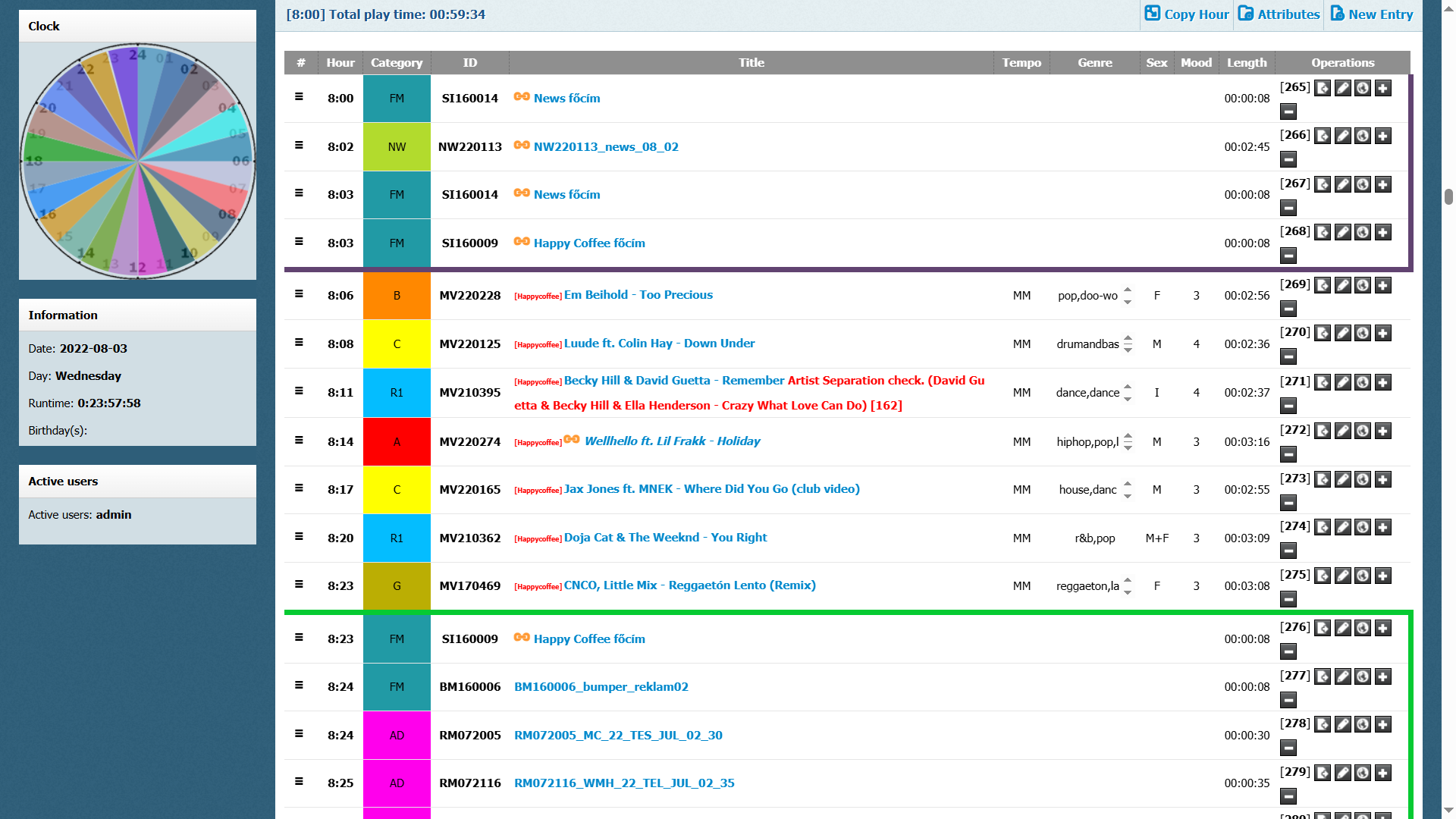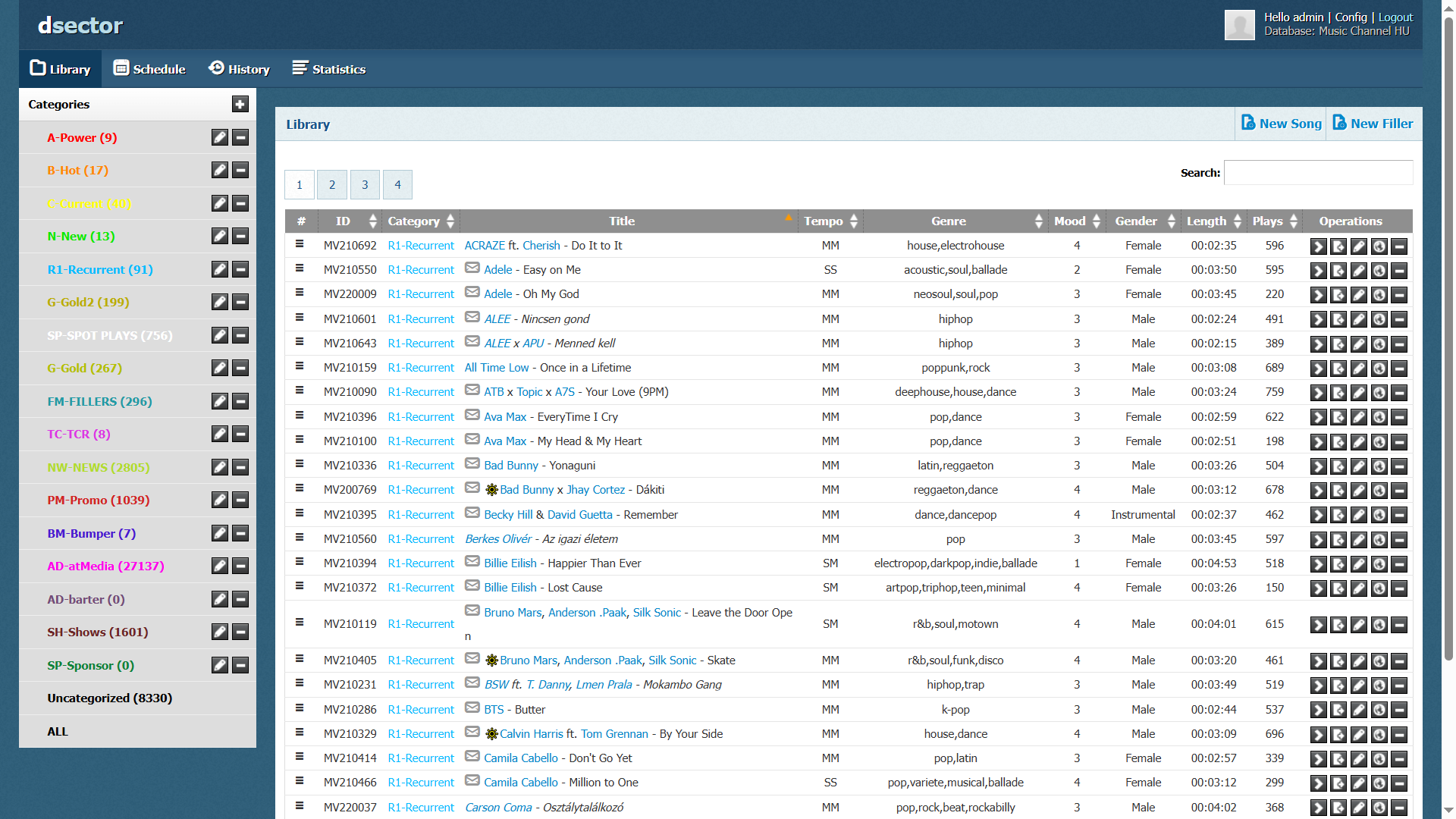

Project d-sector: Revolutionizing Music Scheduling with a Custom-Built Solution
Working on this project was a breeze with experts like Gerzson G. László and Tamás "siráj" Fodor on board. With over a decade's worth of experience in the music industry—having worked at various TV channels and radio stations—they brought a wealth of knowledge and a clear vision for how the software should function.
At the time, existing alternatives like Selector and Music Master lacked the complete set of features we needed. Paying for multiple subscription-based software solutions wasn't an option, so we had to build something tailor-made.
The software had to handle both music and advertisement scheduling, and a key requirement was full support for AirBox + TitleBox (from PlayBox Technology). This meant it needed to export files that could be seamlessly imported into our broadcast machines.

Gerzson and siráj knew exactly what they wanted: automation for daily and weekly schedules, support for thematic shows, charts, and efficient database management. Once all the specifications were finalized on paper, it was time to start programming.
From the beginning, we aimed for a web-based solution, allowing remote access when needed and reducing the need for constant on-site work. The backend was built using Laravel (PHP and MariaDB), templating was handled with Twig, and scripting was done with jQuery, which was the go-to JavaScript library at the time.

Choosing a name for the project took some thought, but Gerzson had always referred to it as "d-sector". The name stuck, thus Project: d-sector was born.
Developing the beta version took around 1,5 to 2 years before it became stable for daily use. Meanwhile, we had a massive task ahead—organizing our extensive media library. With over 12TB of music clips—more than 25000 entries in total, cataloging everything was a major challenge.
All the effort paid off. Previously, scheduling a week's worth of content in Excel took 2–3 days—an inefficient and frustrating process. With d-sector, that workload was significantly reduced.
Development never truly stopped—at least not until Music Channel's shut down. New feature ideas kept emerging, ensuring the software evolved to meet the industry's ever-changing needs.
Project Info
Category:
Biography, Programming, Projects, Web Development